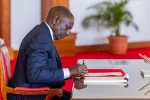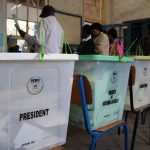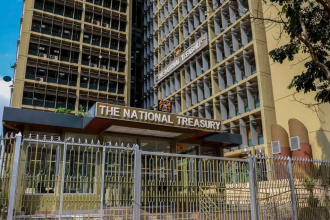Kenya’s fuel prices have taken another sharp upward turn this month, dealing a fresh blow to consumers and businesses already grappling with high living costs.
The Energy and Petroleum Regulatory Authority (EPRA) announced new prices effective July 15, 2025, with Super Petrol, Diesel, and Kerosene rising by Sh8.99, Sh8.67, and Sh9.65 per litre, respectively. In Nairobi, motorists will now pay Sh186.31 for a litre of Super Petrol, Sh171.58 for Diesel, and Sh156.58 for Kerosene.
What’s Driving the Increase?
The latest hike stems from multiple factors, both global and domestic. Internationally, the cost of imported refined petroleum products has climbed significantly.
Data from EPRA shows that between May and June 2025, the landed cost of petrol rose by 6.45 per cent, diesel by 6.27 per cent, and kerosene by 6.95 per cent.
The land cost of petrol in May was Sh76.83 while this rose to Sh81.88 in June. For diesel, the landing cost in May was Sh75.43 while in June the price was Sh80.22. For kerosene, the cost was Sh73.80 in May and Sh79.42 in June.
This surge is tied to fluctuations in global crude oil prices and refining costs, even though Murban Crude Oil actually dipped from US$72.63 to US$67.73 per barrel over the same period.
The disconnect between falling crude prices and rising refined product costs highlights the complexities of global fuel markets, where supply chain disruptions and regional demand spikes can push prices up independently of crude trends.
At home, Kenya’s reliance on imported refined fuel—denominated in US dollars—means exchange rate fluctuations play a critical role. While the shilling has shown slight stability in recent months, averaging Sh129.62 to the dollar in June, its prolonged weakness over the past year has compounded the cost of imports.
In addition, the margins for oil marketing companies have also been increased in the latest review by EPRA.
The margins on petrol have been increased to Sh17.39 per litre from Sh15.24 the previous month while those for diesel have gone up to Sh17.32 per litre from Sh15.16. For kerosene, the OMC margins have risen to Sh17.24 per litre from Sh15.09 in the June 15 to July 14 cycle.
Taxes and levies continue to further inflate pump prices. A detailed breakdown for Nairobi reveals that taxes account for nearly half the retail price of Super Petrol. Key charges include a Sh25 Road Maintenance Levy, a Sh21.95 Excise Duty, and a 16 per cefnt Value Added Tax (VAT), among others. These fiscal measures, while aimed at revenue generation, have made fuel increasingly unaffordable for many Kenyans.
Economic Impact
The ripple effects of rising fuel costs are far-reaching. Higher Diesel prices directly translate to increased transportation expenses, which in turn push up the prices of goods and services.
For households, the spike in Kerosene, a vital energy source for low-income families, poses a severe burden. Businesses, particularly small and medium enterprises, face squeezed profit margins as operational costs climb.
With global oil markets remaining volatile and Kenya’s tax policies unchanged, relief seems unlikely in the near term. EPRA has reiterated its commitment to balancing consumer protection with market stability, but without significant shifts in either international crude trends or domestic fiscal policy, Kenyans may need to brace for sustained high fuel prices.












